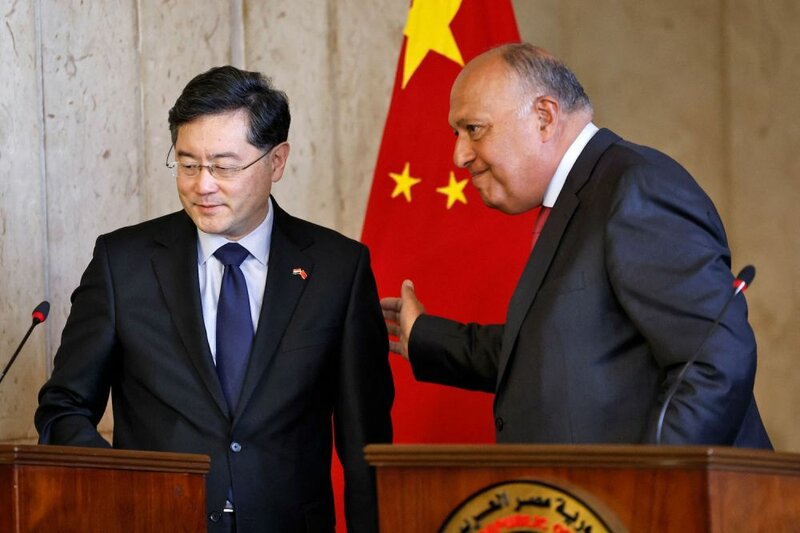A link at foreignpolicy.com to thei African Newsletter (from mid January)
From time to time, since the 70s, I have been accessing topics of interest to me in Foreign Policy. The publication seems to do a better job than many of presenting facts without excessive non-objective analysis. They relate to their readers as if they have at least some desire and ability to question and critically exam the facts.
Don't know how much interest there is in these topics. I like to try to stay current with China's somewhat deeply entrenched relationship with African nations. This newsletter focuses on China's relationship with Egypt.
from the article:
"Last month, Cairo agreed on a $3 billion bailout package with the International Monetary Fund. China stands to lose if Egypt’s economy were to collapse, given the level of trade between the two countries and because China is the heaviest user of the Suez Canal—a crucial link for shipping its goods to Europe."
"Beijing is in part helping to fund and build the business district of a new $59 billion administrative capital east of Cairo as part of a deal with the state-owned China State Construction Engineering Corp.
The new capital, first announced in 2015 and slated to open in mid-2023, is also partly funded through high-interest bonds and is seen by Sisi’s critics as a vanity project that will ultimately worsen the country’s debt. In 2021, Egyptian academics criticized the plans. “Modernity in reality is about a government being accountable to its people, such as providing good education,” Mustapha Kamel Al-Sayyid, a political science professor at Cairo University, told AFP.
Elsewhere, in Egypt’s Suez Canal Economic Zone, China has invested billions of dollars as part of President Xi Jinping’s Belt and Road Initiative. Within the zone, which is made up of ports and industrial estates, Beijing has built an estate known as the China-Egypt Teda Suez Economic and Trade Cooperation Zone, or TEDA City. Here, Chinese-owned businesses manufacture products for export to Europe, the Middle East, and China; Beijing estimates that it has created more than 30,000 jobs."



 China
China Egypt
Egypt Africa
Africa Foreign Policy
Foreign Policy


